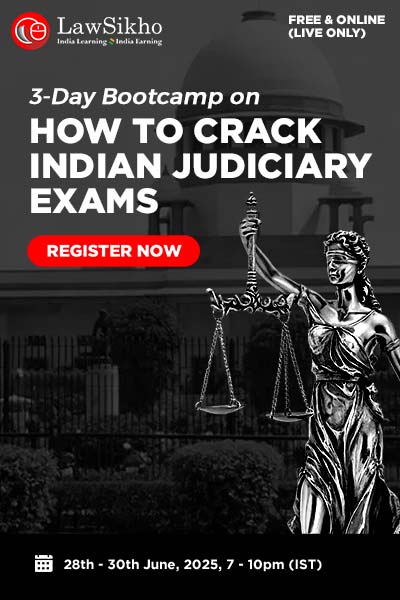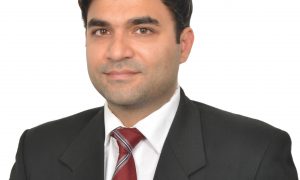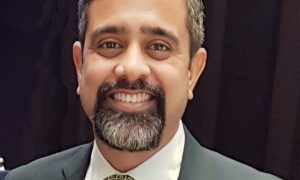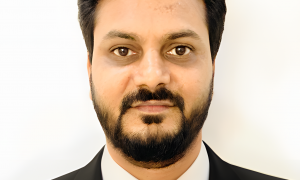This interview has been published by Anshi Mudgal and The SuperLawyer Team
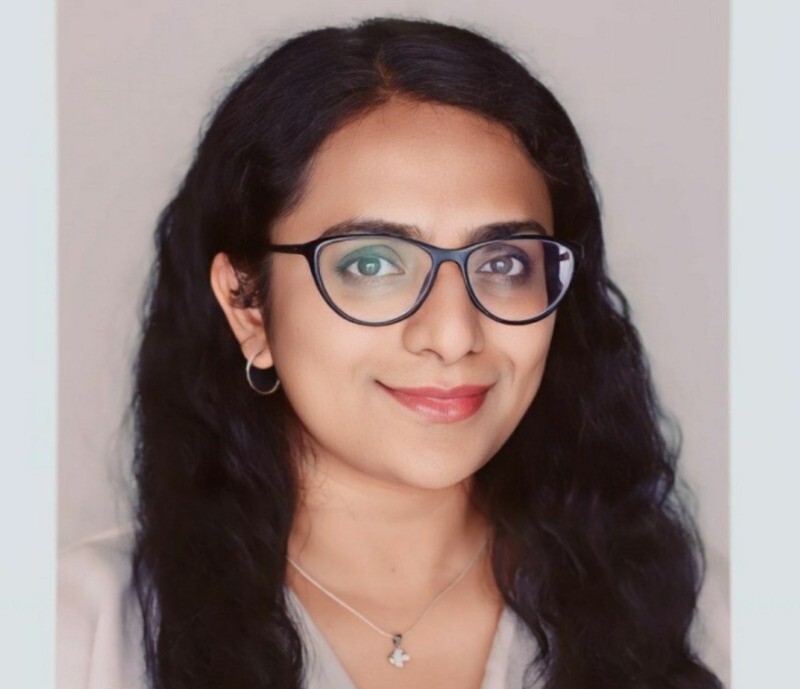
With a practice that spans commercial litigation and international arbitration, and a skillset that cuts across multiple domains, how do you stay motivated amidst such professional breadth? What drives your sustained commitment to engaging across disciplines, jurisdictions, and complex legal systems?
Someone I worked with once told me that they looked for three criteria in an attorney: are you decently smart, are you sincere, and do you have a fire in your belly to learn. Keeping that ambition is important, particularly in disputes. Commercial litigation and international arbitration require a high level of grit, because in addition to being passionate about your work, you require sustained patience to be good at what you do. Learning to write storytelling briefs, legal research, and being comfortable appearing before judges all require immense dedication and passion to this profession. It’s simply a longer learning curve than most other specialized areas of law. My motivation lies in knowing that there’s no real end to this learning curve, and there’s always space to grow.
Engaging in different jurisdictions and legal systems allows you to move away from a myopic view of learning. While India and the US are both common law systems, they have different legal principles and more importantly – cultural dynamics. Taking the time to understand both markets (culturally and legally) and being curious has kept me committed to serving clients in both jurisdictions.
You recently completed an LL.M. in International Economic Law, Business, and Policy from Stanford Law School. Why did you pick Stanford over other law schools, and how did this academic experience shape your perspective on the intersection of international law, economic policy, and business? You also received the prestigious J.N. Tata Endowment Scholarship and Gift Award, what was that experience like, and what advice would you offer to students looking to apply?
Choosing to attend Stanford Law was one of the best decisions I ever made. I was fortunate to get admission to a few other prestigious law schools, but I ended up picking Stanford because I felt like it was the best personality fit. While picking schools, we tend to make a pros-and-cons excel sheet with what we tend to think are objective criteria: reputation, financial aid, faculty, depth of courses etc. I tried using this approach and didn’t feel comfortable using it. At some level, I felt like I could overcome these objective criteria – I could get a loan, take courses outside the law school, learn online if I needed to – but I couldn’t possibly change my personality to fit into a school. Universities in the United States have a personality too, and it’s important to check if their personality brings out the best in you. I didn’t want to choose a university on a transactional front; I wanted to pick a place where I felt I was a genuine fit and could thrive without having to be anyone but myself. Stanford embodies an entrepreneurial spirit, where despite being highly competitive, there’s a sense to collaborate and create. I’ve always enjoyed building things, and to be given a platform to embrace this side of my personality was pretty life changing.
Stanford undoubtedly changed the way I approach international law, economic policy, and business. While the faculty were obviously great in terms of subject matter expertise, they taught me new ways to think by constantly forcing me to ask questions and teaching me to be comfortable with not finding answers. Doubt is key to learning, particularly in law where we learn to question everything. It was truly a drastic change to move from being a senior associate at law firms where “I don’t know” isn’t an acceptable answer (since it’s your literal job to know!), to once again being comfortable in uncertainty. I essentially had to unlearn many things and be open to relearning what looked like was obvious to everyone around me. I specifically recall when I was explained the Stanford Duck Syndrome. The Stanford Duck Syndrome is the idea that while a student may appear relaxed —like a calm duck gliding across a fountain — they’re actually furiously peddling underneath the surface. The idea was to help students overcome the imposter syndrome and learn to accept that there is a learning curve to getting acclimatized, particularly for international attorneys. It’s safe to say that after a few months in Stanford, I wasn’t a duck.
The J.N. Tata Endowment Scholarship and Gift Award was truly a blessing. Shortlisted applicants need to clear a technical round, followed by an interview round, where you’re questioned not just on technical expertise but given hypothetical scenarios to understand the way you think. I would strongly encourage students to apply for this scholarship. The scholarship is not only prestigious and gives you financial freedom, but it also gave me the privilege of time; I was able to put in time and effort in other extracurriculars at Stanford (particularly when I was running the Stanford International Arbitration Association) which I would have otherwise spent working part-time on campus.
You’re admitted to practice in both India and the State of New York. Could you walk us through your preparation for the New York Bar exam, and how this dual qualification has expanded or enhanced your legal practice?
The New York Bar exam was definitely an experience. I was a practicing lawyer for several years, with court appearances, cross-examinations, and negotiated settlements under my belt, so you wouldn’t think learning law was new to me. But Stanford runs on the quarter system, so everything moves at lightning speed. You’re taking classes, working on assignments, participating in extracurriculars till mid-June — all while preparing for an exam that tests multiple subjects in depth over two days in July. What saved me was accepting early on that this wasn’t a test of brilliance, but rather a test of discipline.
I remember creating a simple rule: read everything, be patient, and practice. I didn’t aim to master each topic right off the bat but just focused on becoming comfortable with concepts. Eventually, through hours of repetition and simulation, and weeks of practice tests, I managed to do okay. I also began viewing bar prep as a tool to better understand New York law— and that made it far more engaging than rote memorization.
Being dual-qualified in India and New York has helped me approach client problems with a comparative lens. It signals to clients that I can bridge the gap across jurisdictions, not just on paper, but in lived experience. For instance, when advising an Indian client on a U.S. motion to dismiss, I might explain it through the framework of an Order 7 Rule 11 application (similarities and differences considered). But beyond procedural translation, what makes a real difference is understanding the cultural texture beneath the law — the instincts, expectations, and communication styles that shape how clients perceive risk. That kind of fluency doesn’t come from textbooks. It comes from having practiced and appeared in courts in both systems. Being dual-qualified, to me, isn’t just about knowing two sets of laws. It’s about being able to speak about two legal cultures, and everything in between.
You’ve represented a diverse range of clients from state governments to technology and gaming companies, and you’ve appeared in multiple courts. Could you share an especially compelling case in or matter that stood out to you in India, and how you approached it?
I can share a few I handled, but unfortunately most of the arbitrations are confidential. The ones that strike my mind are a public interest litigation before the High Court of Karnataka in India, a negotiation which I handled for a founder leaving a poker company, and an international ICC arbitration.
The public interest litigation in India concerned the non-implementation of the Karnataka Preservation of Trees Act, 1976. The object of the Trees Act is to prevent indiscriminate felling of trees and maintain ecological balance by establishing a strict procedure and mandating compensatory afforestation. To cut a tree in the State of Karnataka, an application is to be submitted to a Tree Officer, who must assess if there is a genuine requirement to cut a tree and direct the applicant to conduct suitable compensatory afforestation. By filing several right to information requests with the statutory authorities, we discovered that organizations had failed to follow due procedure, and large-scale permissions were being granted to corporates causing a heavy loss of tree cover in the city of Bengaluru. We filed applications to direct government authorities to conduct a tree census in the city of Bengaluru and engage a company to develop an application to make this data publicly available and obtained an order requiring all permissions and applications to be uploaded on an official government website for the first time since the enactment of the Trees Act in 1976. I had the chance to argue a few applications before the Chief Justice of High Court of Karnataka against the Additional Advocate General and very well-known senior counsel, and these moments reminded me why I chose to be an attorney in the first place.
I also led a mandate of advising two founders on a heated exit from a leading online poker company. The negotiation took almost two years to complete, and I was working directly with the founding partner of my firm and the client on this mandate. We ultimately negotiated favorable terms for the founders’ exit with some assets of the company. This was a lesson of patience, and the client continues to be a good friend.
My most memorable arbitration was when I was a lead associate on a London seated ICC arbitration involving a construction dispute where we were able to secure a comprehensive victory for our clients, with costs. We had to draft urgent pleadings, reports and submissions, prepare for a trial by working with fact and expert witnesses, and I assisted the partner with conducting cross-examination and hearings. The expert was so impressed with our work that we got more referrals for arbitration mandates.
Your writing and conference portfolio spans topics such as international law, international arbitration and contract termination, all in prestigious journals or sources. How do you select the themes you write about, and what role do you believe legal scholarship plays in informing or influencing real-world legal practice?
I wish I could say I had a grand plan when it comes to selecting writing or panel topics. But most of my writing is sparked by curiosity or a moment of friction in practice. Something doesn’t sit right. A client asks a deceptively simple question. Or I notice a growing silence in the literature around an issue that’s rapidly evolving. That’s usually my cue to pause, dig deeper, and ask: “Why is no one talking about this?”
For example, I recently wrote two articles for Bar and Bench and Law360 on the growing legal business need in India, and how foreign firms tend to view these markets. It’s not a typical “law article,” but it does answer a lot of questions that I get from international students who want to make a career in the US regarding how foreign firms make decisions. It also helps foreign firms understand a market that is otherwise considered “tough to crack.” Similarly, when I wrote on contract termination during insolvency, it was because I had dealt with the real-life consequences of clients being caught in the grey zones between regulatory change and contractual rigidity. These were not abstract ideas, but live wires in the matters I was working on.
As for the role of legal scholarship, it can be a place where practice meets pause. The courtroom is fast, reactive, and adversarial, but writing allows you to reflect, to breathe, and even occasionally critique your own assumptions. More importantly, it helps shape the scaffolding of what tomorrow’s disputes might look like and acts as an informative guide to clients, judges, policymakers, students and even practitioners. For me, writing is a form of contribution. It’s how I participate in the growth of the field — not just as a practitioner, but as a member of a global legal community asking itself how to do better.
You’ve continued to judge international moot court competitions such as Oxford-Price Media, ICC and Jessup and often participate in and organize international arbitration panels. Why do you continue to do this, and how important do you feel it is to participate in panel discussions? What are other ways that young professionals can get involved in the arbitration community?
Mooting was a big part of law school for me. International moots taught me the application of law, advocacy skills, brief writing and teamwork; all of which continue to serve me today. I continue to judge some of these international moot competitions to try give back to students what was given to me.
Panels are a great way to naturally network and meet people in international arbitration. It’s a field where there are multiple conferences every year, and you have the privilege to select panels which interest you. When I was elected as one of the Presidents of the Stanford International Arbitration Association, I used that opportunity to organize panels on interdisciplinary topics that were not commonly discussed in international arbitration, e.g., international arbitration and corporate governance disputes. I also managed to organize a one-of-a-kind panel on US-India disputes during the California International Arbitration Week, where some panelists flew in from India. I was also invited to a wonderful AAA-ICDR panel on how silence can be interpreted in arbitration, with each person on that panel having a broad international perspective. Those panels allowed me to meet many fantastic international practitioners, who were then mentors and are now great friends. The arbitration community is small, and it helps to have a trusted group of friends.
I would strongly urge students and young practitioners to join organizations that resonate with them. For instance, I’ve been an active member of CalArb since I moved to the US and have continued to attend the California International Arbitration Week as a moderator for the last two years. I’m also a steering committee member of IWIA and a Peer Reviewer for the GNLU SRDC-ADR Magazine. Being at the helm of organizations really helps you naturally connect with your peers in the arbitration community.
From GNLU to Stanford and your extensive work across litigation, arbitration, and academia, what advice would you offer to young Indian lawyers aspiring to build a global legal career? What mindset or skills do you believe are essential to thrive in international legal settings?
Many young lawyers reach out to me with the same question: “What’s the path?” And my honest answer is that there isn’t one path. But if there’s one mindset I think is essential, it is that it’s okay not being the most knowledgeable person in a room. When I moved from India to the U.S., I had already argued in courtrooms, cross-examined witnesses, and led client negotiations. But in the US, I was always surrounded by excellent — and far better— peers, both at my law school and my current law firm. I was always told not to be afraid of being the least experienced person in the room, because that just means you’re in the right room. Second, detach your identity from titles. I’ve been an associate, a senior associate, a student, a tribunal secretary — and each role taught me something profoundly different. The point isn’t to climb a ladder, but rather to try to expand your vision. Finally, be willing to fail. And more importantly, be willing to fail better. One of the most liberating shifts in my mindset was realizing that failure is not static but rather directional. If you’re failing at things that matter and learn from that ‘failure’, you’re probably moving closer to being excellent at the work you’re meant to do.
A global legal career is built on persistence, perspective, and an openness to being reshaped by the world you’re trying to serve.
Reflecting on the early years of your professional journey, what were some of the most formative experiences that shaped your understanding of the law and motivated you to pursue an international trajectory?
Looking back, I think it was a very natural but not direct progression. I was always inclined towards political science and economics in school, gravitated toward spaces where people debated and defended their ideas, and heavily participated in Model UNs (from Harvard to Doon); all of which gave me a glimpse into how power, diplomacy, and language interact. At law school, I started applying law to defending ideas and participated in international moot court competitions. Jessup and ICC were particularly transformative because they are immensely immersive simulations of international law. I remember spending nights untangling treaties, piecing together arguments on state responsibility, and realizing how layered global law could be. It was also easy to draft briefs because I was simultaneously learning to review drafts while being on editorial boards at journals. Mooting taught me precision and encouraged me to apply for international opportunities.
An international opportunity that stuck out to me was working at the International Law Commission in Geneva for the Chairman of the Drafting Committee. My law school was also very helpful and awarded me a scholarship once I was selected. Sitting in on discussions where international rules were being drafted, I saw first-hand how legal systems tried (and often struggled) to build consensus. That experience gave me the quiet conviction that I wanted to be in rooms like that, where the stakes were high, but there was a strong intent to collaborate.
Those early years weren’t always linear. But they were rich — and they planted the seeds for everything that followed.
You’re a certified Classical Spanish Guitarist, an extraordinary pursuit alongside your legal career. How do you manage work-life balance, and has your engagement with music influenced your approach to stress management, creativity, or sustained focus in high-pressure legal environments?
I don’t think I’ve ever liked the phrase “work-life balance.” It feels like a scale you’re constantly failing to calibrate. I follow Indra Nooyi’s thoughts on this: it’s not about doing it all—it’s about prioritizing what matters most today.
Having hobbies is important not just to reduce stress but also to help you forcibly take a pause. The classical guitar has always been my little escape. It requires discipline, concentration, and most importantly, to enjoy the music you’re playing. You can’t rush through a Bach prelude — your fingers won’t let you and the music makes no sense. Playing music trains your mind to be fully present, to respect silence, and to pay attention to your notes.
In law, especially in high-stakes litigation or arbitration, we’re constantly managing pressure, deadlines, and expectations. It’s easy to lose yourself, and needless to say that your family and friends play a huge role in feeling like you have a solid support system. My mom (who was a fantastic business leader in her own right, much like most women I know), had a huge influence in my life growing up and continues to do so. Luckily, neither my mom nor many close friends are attorneys, and their perspective helps me view work from a less “all-encompassing” lens.
Get in touch with Vaishali Movva –

